-

Deco Lighting
50w LED Barn Downlight DBARN 250w equivalent 5500 lumens 5000K (DLC)
Add to Cart$181.14 -
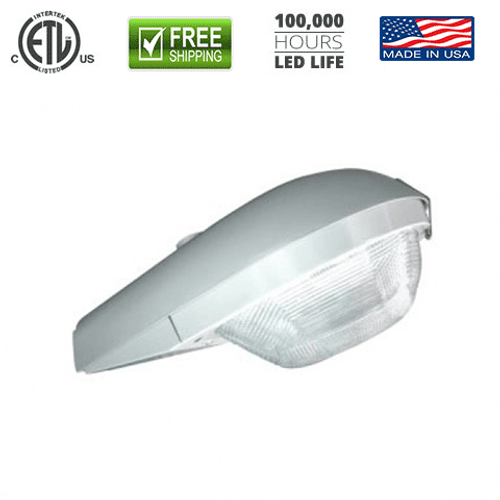
-
-
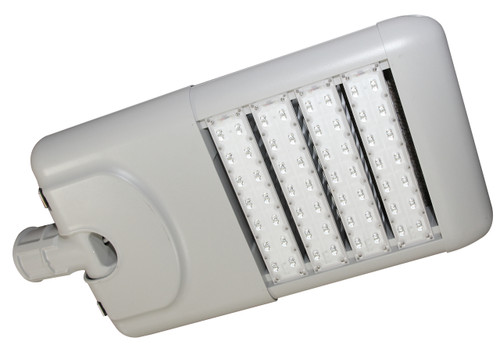
-

-

-

-
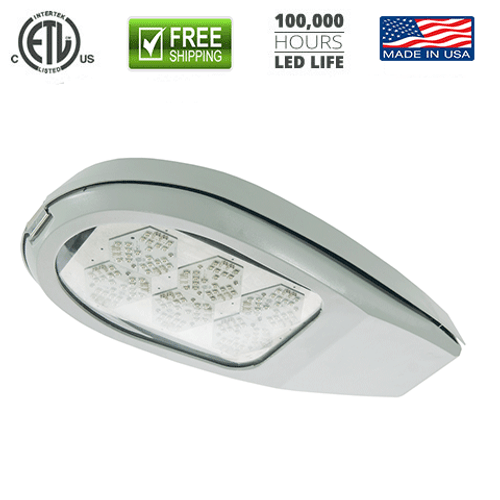
-

-

-
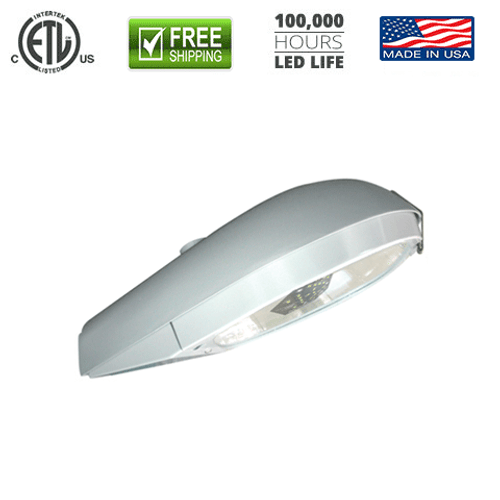
-

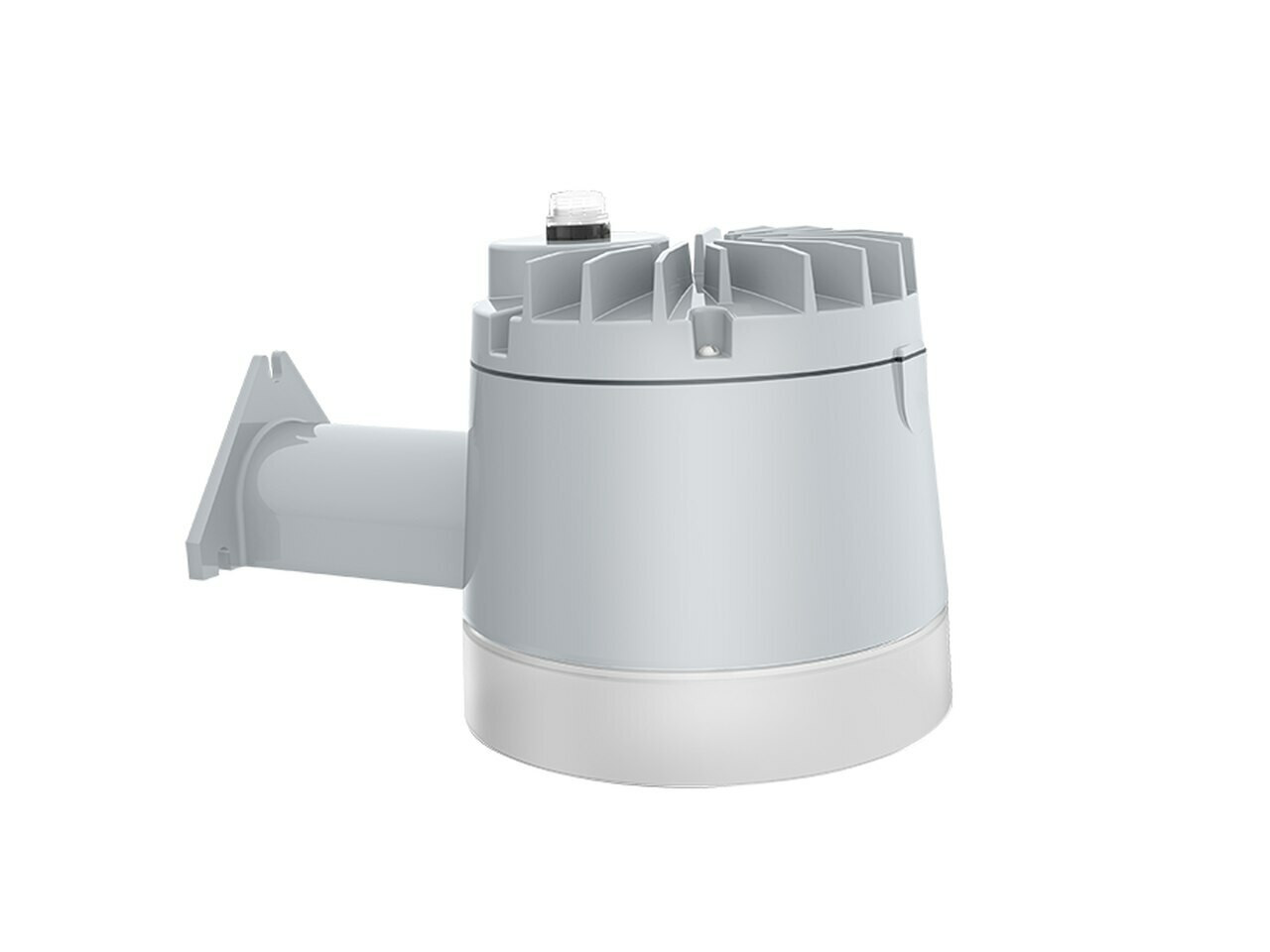
Street & Roadway Lights
LED Street Light Bulbs Supplier
A street light, light pole, lamppost, street lamp, light standard or lamp standard is a raised source of light on the edge of a road or path. Similar street light bulbs may be found on a railway platform. When urban electric power distribution became ubiquitous in developed countries in the 20th century, lights for urban streets followed, or sometimes led.
Many lamps, especially commercial street lamps have light-sensitive photocells that activate the lamp automatically when needed, at times when there is little to no ambient light, such as at dusk, dawn, or at the onset of dark weather conditions. This function in older lighting systems could be performed with the aid of a solar dial. Many street light bulbs systems are being connected underground instead of wiring from one utility post to another. Street lights are an important source of public security lighting intended to reduce crime. (Wikipedia)
Enhancing Safety Through Proper Illumination with Street Light Bulb
Lighting arrangements of a street light bulb may be used to identify the functions of different roads and create an urban design effect. For example, two light poles at the entrance to a road can be used to create a gateway effect to any area. Sizing of trees and shrubs when mature and their location in any layout plan must be considered considering the location of street light bulb poles. Similarly, LED highway lights have a significant installation style to complement the urban design.
Adequate lighting should be provided in all parts of the area/layout to enhance safety and security for drivers, cyclists and pedestrians as well. A high-wattage street light bulb is necessary to illuminate bottlenecks, bends and traffic calming features, to enable road users to see the potential obstacles and each other in the night to reduce the fear of crime.
Street lighting must be planned as an integral part of the initial layout of access and shared surface roads, driveways, walkways and in conjunction with the location and anticipated growth of trees/shrubs. The uniqueness of lighting provided should confirm that shadows are avoided in places where pedestrians/cyclists would otherwise be vulnerable.
The Cultural Importance & Benefits of Commercial Street Light
In our cities, commercial street light has always been an essential part of our infrastructure, While it gives the sense of security, better visibility and adding to the overall ambiance, these are a few things roadway lights benefit us with:
- Reducing risks of night time accidents
- Discouraging crime
- Assistance in the protection of buildings/property
- Making a secure environment for habitation
- Discouraging vandalism
It also enhances the appearance and urban design of the area especially in the dark. Arrangement of street lights in a commercial street describe the character of the street.
Your Guide to Choosing the Right Type of Street Lights
The LED street bulb industry has been evolving at light speed lately. With emerging technologies and innovative concepts, there is a wide range of street lights available to us. But here are the main types you should know.
Low-Pressure Sodium (LPS)
The low-pressure sodium (LPS) lamp works similarly to the HPS light. Instead of producing white light (all the colors of the rainbow), LPS lamps produce almost exclusively yellow light. While this light is fairly efficient, it takes several minutes for the bulb to turn on. The light is very yellow-orange. This yellow light makes objects it is illuminating to look a different color or gray.
LED Commercial Street Lamps
LED technologies have developed rapidly in recent years and these street light bulbs are now being integrated into outdoor lighting solutions like commercial street lamps. While the energy savings are significant, LEDs produce a lot of blue light, too much of which can have negative effects on human health and wildlife.
High-Pressure Sodium (HPS) Street Lights
The high-pressure sodium lamp (HPS) is the most commonly used commercial street light in many countries throughout the world. It produces bright light by electricity via a mixture of gases, which produces light. The lamp itself is much preferable because it requires very little/less maintenance. These lamps are fairly efficient. They take few minutes to turn on completely and produce a yellow-orange kind of glow.
Metal Halide Street Lights
Metal halide lamps/bulbs are mainly used in street lights, parking lot lights, and stadium lights. They are very bright in color and contribute to a lot of light pollution. They are fairly efficient. They produce very white light and have good color performance/rendering, meaning that objects under these lights look their true color.
Phosphor-Converted Amber (PCA) LED Street Lamps
PCALEDs have only been on the market for the past few years. They use very little energy and have good color rendition, but are still rather expensive. Some cities have already installed these lights on their streets as commercial street lamps. However, with passing time and higher wattage LED bulbs, can also be used as LED highway lights.
Narrow-Band Amber (NBA) LED Street Lamps
Narrow-band amber (NBA) LED street lights are a brand new technology. Rather than emitting all the colors of the rainbow and a lot of blue light, they emit mostly yellow. They still have good color rendition, meaning that they do not make things look grey like LPS lamps do. Because this technology is so new, these bulbs are not widely available and as such, are still expensive.
Top-Rated Commerical Street Light Distributor & Supplier
Lightingandsupplies.com is a lighting distributor of Indoor & Outdoor Commercial and Residential light fixtures and bulbs. Based in the US, we carry the top LED lighting brands like EiKO, RAB Lighting, MaxLite, naturaLED, Westgate Lighting and more. We also carry a wide variety of Horticulture products by Hydrofarm, along with ceiling fans by RP Lighting+Fans. Lightingandsupplies.com also provides rebate programs, expert lighting design advice, and lighting audits for large projects. As a wholesale ad bulk distributor of lighting products, we take pride in our customer-focused 100% satisfaction guarantee and return policy.
For more information, call 888-325-4448 or email: [email protected] for more information.

